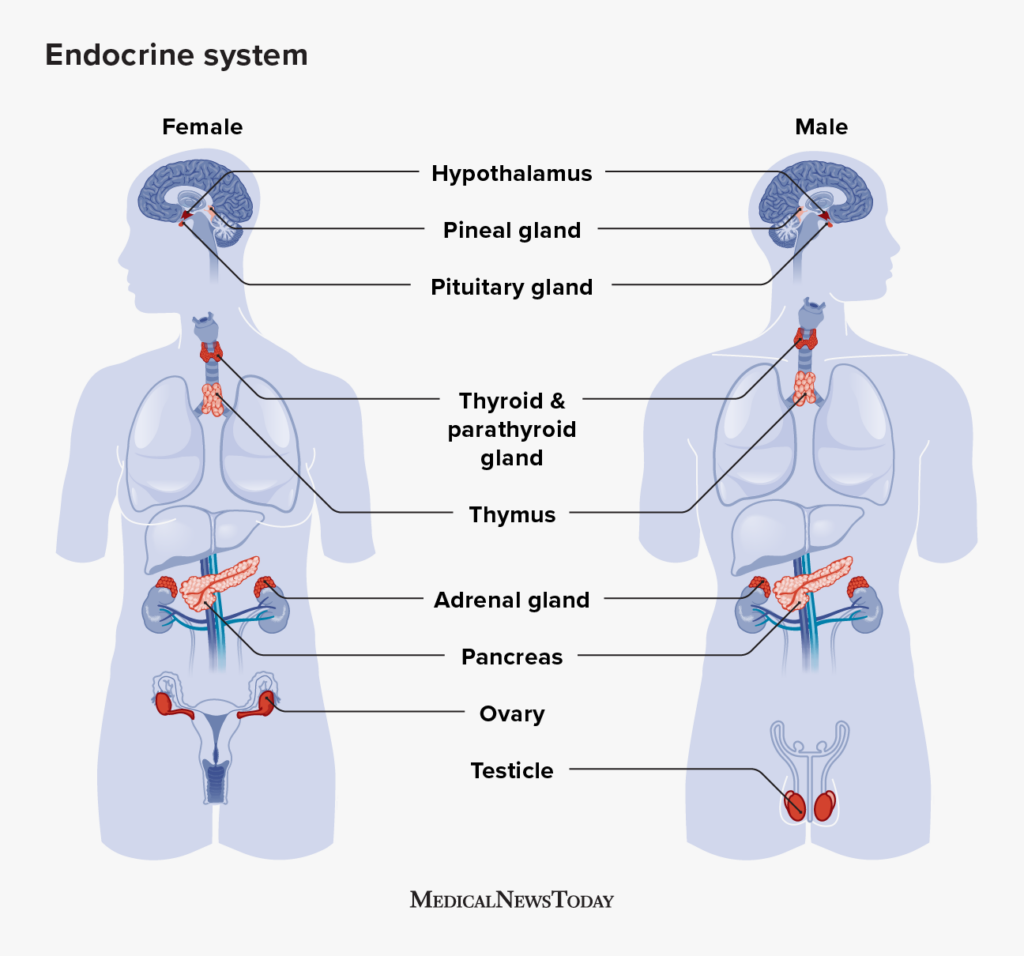Endocrinologist in Georgetown: Advanced Look After Hormonal Health And Wellness
Wiki Article
The Science Behind Hormonal Agent Regulation: Insights From an Endocrinologist
The Science Behind Hormonal Agent Guideline: Insights From an Endocrinologist offers a comprehensive exploration of the complex procedures involved in hormone guideline. Created by an experienced endocrinologist, this informative overview explores the remarkable globe of hormones and their vital duty in maintaining bodily functions. From the principles of hormonal agent manufacturing to the complex comments loops that regulate their launch, this publication provides a precise assessment of the systems at play. In addition, it discovers the various factors that can interrupt hormone balance and uses useful understandings right into just how these inequalities can be detected and dealt with. Whether you are a clinical specialist looking for a much deeper understanding of endocrine feature or a private thinking about discovering the science behind hormonal agent policy, this publication is a very useful source.Hormones and Their Functions
Hormonal agents play essential functions in the policy and coordination of numerous physical processes within the body. These chemical carriers are created by endocrine glands and are released right into the bloodstream, where they travel to target cells or body organs to exert their effects. The features of hormones vary and incorporate nearly every aspect of human physiology.Among the main functions of hormonal agents is to maintain homeostasis, which is the secure interior environment needed for the body to work ideally. Insulin, a hormonal agent produced by the pancreatic, regulates blood sugar levels by advertising the uptake and storage of sugar in cells. Another hormone, cortisol, aids the body react to anxiety by boosting blood glucose levels and suppressing the body immune system.
Hormonal agents additionally play important functions in development and development. Development hormonal agent, created by the pituitary gland, boosts the growth of bones and cells, while thyroid hormones control metabolic rate and influence the advancement of the nerve system - Best endocrinologist in texas. In addition, reproductive hormones, such as estrogen and testosterone, are accountable for the growth and maintenance of secondary sexual features and the regulation of the menstrual cycle
The Endocrine System: An Introduction
Playing an essential function in the law and control of physiological processes, the endocrine system is an intricate network of glands that produce and launch hormonal agents right into the bloodstream. These glands, consisting of the hypothalamus, pituitary gland, thyroid gland, adrenal glands, pancreas, ovaries, and testes, secrete hormones that function as chemical carriers, affecting numerous physical features. The endocrine system functions in combination with the nerve system to control and maintain homeostasis, guaranteeing that the body's internal atmosphere stays stable.It creates hormones that inhibit the release or promote of hormones from the pituitary gland, which in turn manages the activity of other endocrine glands. The thyroid gland, located in the neck, produces hormonal agents that control metabolic process and energy equilibrium.

Regulation of Hormonal Agent Manufacturing
The law of hormonal agent manufacturing includes a complicated interaction in between various glands and responses devices within the endocrine system. Hormonal agents are chemical messengers that play a vital role in preserving homeostasis and collaborating my response various physical processes in the body. The production of hormonal agents is firmly controlled to make certain the appropriate functioning of the endocrine system.The hypothalamus, situated in the brain, acts as a crucial regulator of hormonal agent manufacturing. It releases hormonal agents that stimulate or hinder the production of hormonal agents by the pituitary gland, which is commonly referred to as the "master gland" of the endocrine system. The pituitary gland, consequently, produces hormones that act on numerous target glands throughout the body, boosting them to produce and launch particular hormonal agents.
Comments devices likewise play an important duty in hormone law. There are two kinds of feedback systems: adverse comments and favorable feedback. Unfavorable responses assists keep hormone levels within a slim range. When hormone degrees climb above or drop listed below the optimal variety, the body triggers systems to either decline or rise hormone manufacturing, specifically, to restore balance. Favorable responses, on the other hand, magnifies the manufacturing of hormones in reaction to specific stimulations, such as childbirth.
Feedback Loops in Hormone Guideline
Responses loopholes play a crucial function in the policy of hormonal agent manufacturing. These loopholes entail a collection of communications between the endocrine glands, hormonal agents, and target body organs to keep homeostasis in the body. There are 2 kinds of comments loops: negative feedback and favorable responses.Unfavorable comments is the most common kind of responses loophole in hormone policy. It works by sensing the degrees of a hormonal agent in the blood and adjusting hormone production accordingly. When hormonal agent degrees rise over a particular threshold, the hypothalamus in the brain signifies the pituitary gland to lower hormone production. This, subsequently, minimizes the stimulation of the target organ, leading to a decline in hormonal agent secretion. Conversely, when hormone degrees drop below the limit, the hypothalamus promotes the pituitary gland to increase hormonal agent production, recovering equilibrium.
Positive responses loops, on the various other hand, amplify hormonal agent production. This happens when a hormone promotes see post the launch of more of the very same hormone, bring about a rapid rise in its levels. Positive responses loops are much less typical in hormonal agent policy and are generally included in specific physical processes, such as childbirth and lactation.
Variables Influencing Hormonal Agent Equilibrium
Elements affecting hormone equilibrium include dietary selections, lifestyle practices, and ecological exposures. These aspects can have a substantial effect on the fragile balance of hormones in the body, influencing various physical procedures and total health.Nutritional selections play a critical role in hormone regulation. Consuming a well balanced diet regimen that consists of a variety of nutrients is vital for keeping hormonal agent equilibrium.
Appropriate sleep is critical for hormone manufacturing and guideline, as disrupted rest patterns can lead to inequalities. In addition, chronic anxiety can dysregulate the hypothalamic-pituitary-adrenal (HPA) axis, a key player in hormonal agent regulation, leading to a waterfall of hormonal discrepancies.

Final Thought
In verdict, recognizing the scientific research behind hormonal agent law is essential for maintaining overall health and well-being. Hormones play essential roles in various bodily functions, and their production is managed by intricate responses loopholes.The Science Behind Hormonal Agent Guideline: Insights From an Endocrinologist provides a comprehensive expedition of the elaborate processes entailed in hormone regulation. It generates hormonal agents that inhibit the launch or stimulate of hormonal agents from the pituitary gland, which in turn manages the activity of various other endocrine glands. It releases hormonal agents that hinder the production or boost of hormones by the pituitary gland, which is often referred to as the "master gland" of the endocrine system. The pituitary gland, in turn, generates hormones that act on numerous target glands throughout the body, stimulating them to generate and release details hormones.
When hormonal agent levels rise above you can check here a specific limit, the hypothalamus in the brain signifies the pituitary gland to decrease hormonal agent manufacturing. (endocrinologist in liberty hill)
Report this wiki page